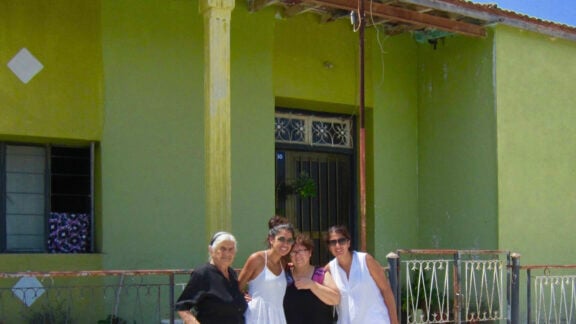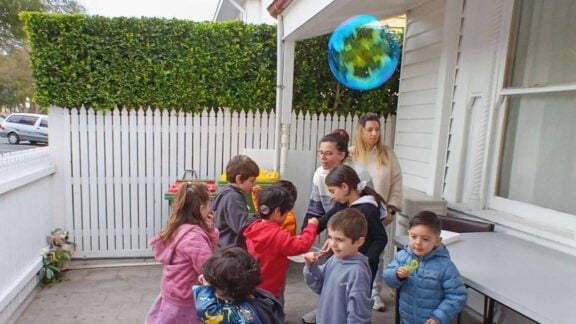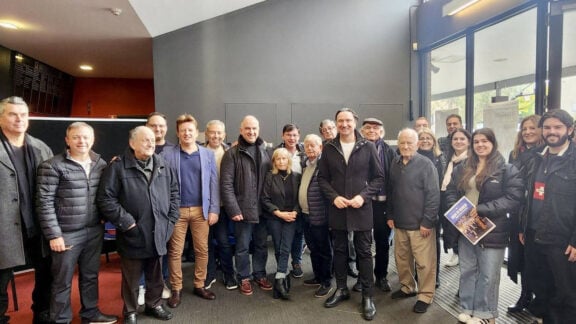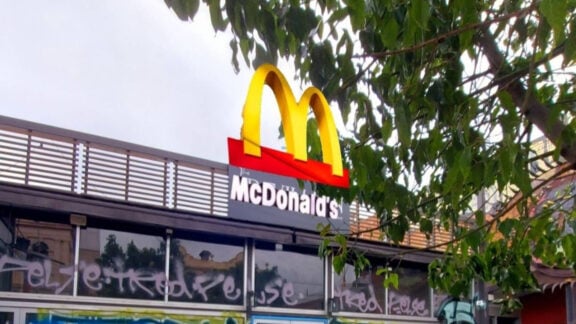La Trobe University is just one of seven universities currently negotiating with banks after experiencing their COVID-19 student numbers plummet.
For the Greek community, the news is particularly important as the university is the only one in Victoria which offers Greek as a course of study. Consistent work even lead to a 42 per cent increase to student enrolments in the language program from 28 to 48 students in the past two years.
Lecturer Stephie Nikoloudis, Coordinator of Greek Studies at La Trobe’s Department of Languages and Linguistics, told Neos Kosmos that the Greek Studies program is not at risk at the moment “but nothing is guaranteed”.
“If the University is experiencing financial difficulties, then, naturally, all its constituent parts are vulnerable,” she said, adding that the longevity of the program would depend on the number of student enrolments, research and associated revenue, as well as funding and private donations like the Vassilogiannis Bequest.
She is particularly grateful for the support she has received from students, colleagues and the community.
READ MORE: Dardalis Archives revive the Greek migrant story at La Trobe University
“In addition, our new literature class ‘From Homer to Slam Poetry’ attracted three times the number of students it had last year, and our popular ‘Ethnic and Civil Conflict in Southern Europe and Cyprus’ will be offered again in second semester. Our new three-week intensive Overseas Study Tour will run again in Greece at the end of 2021 if it is safe for it go ahead,” she said, pointing to a promising future
“We are excited about the important and relevant research that is currently being undertaken in our program: we have an Honours student researching Greek and Spanish literature, a Master’s student working on Greek language learning, a PhD student examining Greek-Turkish relations and the implications for the surrounding region, and other research in progress, including the ongoing integration of the Dardalis Archives of the Hellenic Diaspora into our teaching and research activities.”
The goal is to strengthen the program by keeping the curriculum updated and conducting research. “We are committed to continuing our work on Greek language and culture with students from Greek and non-Greek backgrounds into the future, in the context of both the original homeland and multicultural Australia,” she said.
Unfortunately, without funding, universities are languishing – and not just their language programs. La Trobe University’s Vice Chancellor Professor John Dewar has been upfront and has explained to staff the financial difficulties caused by the coronavirus crisis.
“He has been working with other university leaders and the NTEU to develop the Australian Universities Jobs Protection Framework (AUJPF) in the hope of protecting as many jobs as possible. Staff will be asked to vote on the proposal in the coming weeks,” Ms Nikoloudis said.
READ MORE: La Trobe University’s 50th anniversary celebrations set to kick off
“If our efforts, alongside the visionary generosity of the late Mr Vassilogiannis, were to encourage another generous benefactor to emerge from the community to assist the program during these uncertain times, we would be even better equipped to demonstrate to the University that there is a demand for, and a future in, tertiary Greek Studies in Victoria. What would be most helpful at the moment would be for citizens to lobby the government by writing to ministers to reconsider their refusal to help the tertiary sector.”
Victorian Premier Daniel Andrews has already said he would look at measures to help the universities sector, largely excluded from JobKeeper. A report issued by the Melbourne Centre for the Study of Higher Education, released last week, paints a dire pictures for universities which do not have sufficient cash reserves to weather a prolonged downturn due to the drop in international students. .
The other universities on the high risk list are Monash, RMIT, University of Technology Sydney, Central Queensland, Southern Cross and Canberra universities. Even more universities are assessed at “medium financial risk”, and these include the University of NSW, University of Queensland and University of Adelaide. The analysis took into account predicted falls in revenue through to 2024.









